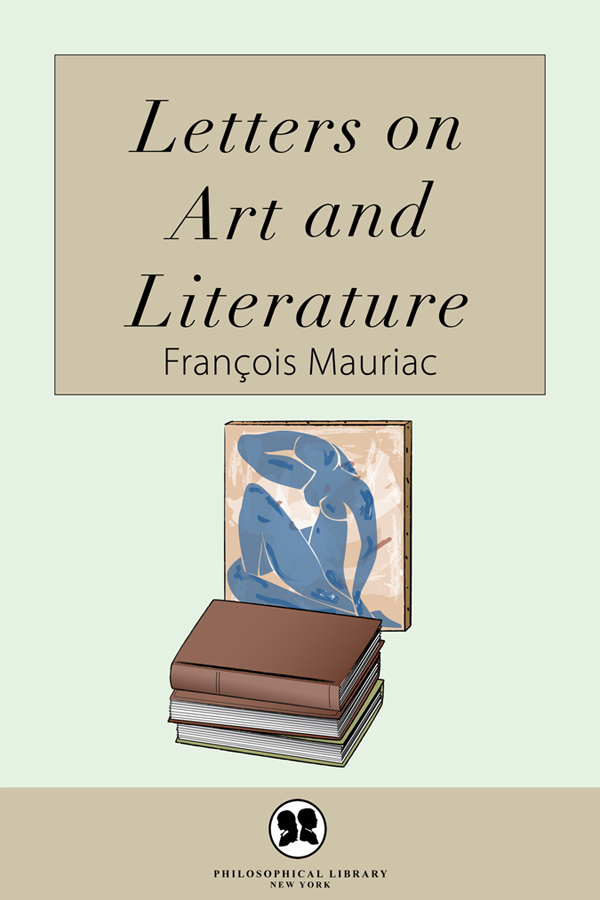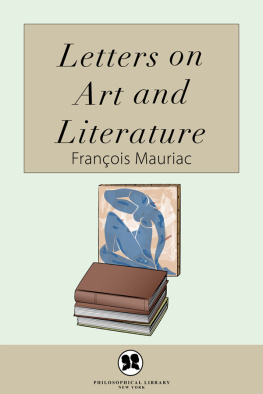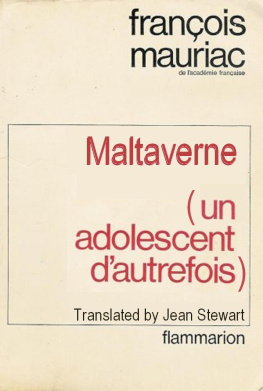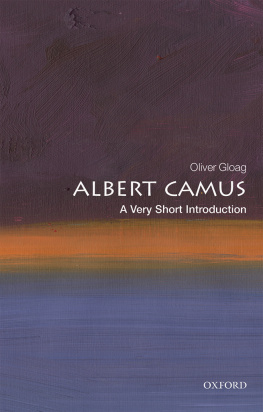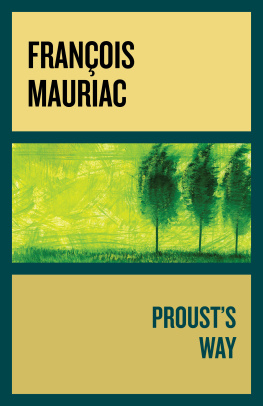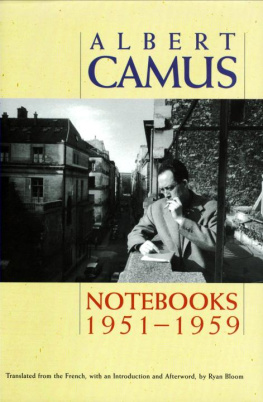I
AFTER THE DEATH OF GEORGES BERNANOS
You have taken it upon yourself to write me, Sir, taking me to task for the fact that I kept silent when Georges Bernanos died. You pretend to believe that it was a low spirit of resentment that kept me from paying him the homage I owed him. On the one hand, you do me the honor of believing that I could have said about him things that escaped most of those who wrote in his praise; but on the other hand, you dont believe that I am capable of forgetting insults: Especially, you add, those that Bernanos heaped upon you, which perhaps shocked some readers of LIntransigeant, but delighted a far greater number.
You remind me that in Figaro (which Bernanos, in one of his last articles, compared to a house of ill-repute), M. Andr Rousseaux did not hesitate to proclaim that so far as he is concerned, he never deemed his judicial fits of anger excessive. That is not going far enough. If Figaros critic had been entirely sincere, he would have confessed that this anger delighted him more than anything else in Bernanos. Note that in this connection Andr Rousseaux gives way to what I may call a Sainte-Beuve complex. Following the example of this illustrious critic, he judges himself far superior in experience and knowledge to those of his contemporaries who have arrived and rest secure in their success. Too often, in a man of intellect whose task it is to judge other peoples books, envy, that most ignoble of passions, is confused with a feeling of offended justice. Perhaps dear Rousseaux, in order to help himself live, has tucked away in some secret drawer, like Sainte-Beuve, secret notebooks filled with different poisons. But what good are these posthumous pleasures which we can enjoy only in advance, and of which our ashes will know nothing? The truth is that the fury of Bernanos pleased our friend Rousseaux by reason of an excess of that bitterness which imparts to everything he writes a rich jaundiced color. A great writer may think he is only venting his own spleen; but actually he may also serve as an outlet for less illustrious spleens; in this way, Bernanos did much good to many people.
Coming back to your letter, dont you think, Sir, that if I had dedicated to Georges Bernanos, the one of my contemporaries whom I perhaps most admired, the article which I alone, true enough, could have written about him (not necessarily better than others, but nevertheless irreplaceable), you would have written me a very similar letter, in which, however, you would have reproached me for taking advantage of the silence of a once mighty personage, now dead and therefore unable to speak in his own defense? However, know this: a man like Bernanos never passed on his colleagues, and particularly on me, an unequivocal judgment. In this respect we are all alike. There is something we hate in those we love, and something we like in our worst enemies; it is simply a matter of letting the light fall on one side or the other. So far as I am concerned, Bernanos often shifted the lamp. I am no collector of old papers, but without going into extensive research I can give you two examples which, I have no doubt, will come as a great surprise to you. If I were to go through my files I could certainly find others, but these, I think, will suffice. As you first glance at these texts, I fear you will accuse me of yielding to vanity, or at least to a sense of pride. Far from it: if you have the patience to read this letter to the end, you will see that on the contrary I have only sought to throw some light, for your sake and my own, on the reasons why Bernanos was at every turn offended and irritated by my sort of Christian.
That he did me justice on the political plane you may gather from this dedication which he inscribed on my copy of Grands Cimetires sous la lune: This book can enter only through the breach which you have so courageously and so nobly opened. May you not find it too unworthy of you! With all my admiration, and all my heart.
But there is a more explicit text that touches the heart of the matter. I quote from one of the last letters I received from him, undated, but subsequent to the Liberation. After outlining his reasons (none of them offensive to the Academy), why he did not wish to sit in that body, he adds: It seems to me that many matters would be cleared up between us if only we knew each other better; but it also seems to me that in spite of the many things that draw us together, your youthful approach to life and mine, in the distant past, were so differently slanted as to preclude our ever understanding each other completely, even though we may be in basic agreement. However, I know from experience how often your name is linked with mine by many of our overseas friends, who perhaps know better than we what we mean to each other. We therefore find ourselves united in their hearts, even while we wait to be better joined one day in the gentle mercy of God, as in an everlasting morning. Believe that I feel with you deeply.
You will admit, Sir, that the Bernanos who speaks here comes closer to the author of the Journal dun cur de campagne than to the writer who claimed in LIntransigeant to Andr Rousseauxs delight, that in my writings he heard and smelled the sounds and odors of a water-closet. But do not fear that I may wish to take up arms against you, or above all against the Georges Bernanos of this admirable text; the charity that here overflows (and charity was the very foundation of his nature, while insult was only a fringe of foam) certainly touches, strikes and humiliates me, but neither offends nor degrades me.
THE GOOD SHARP ARROW AND ITS ENDURING KEENNESS
The truth is that there are two kinds of Christians (by Christians I mean people who try to live according to Grace). The majority of them do not refuse to adapt themselves to a world beset by evil, or to come to terms with it. They fully understand what the great Bossuet meant when he confessed that he could do nothing well if he was at odds with his servant. They dont seek out posts and honors, but they accept them when they are offered, first because nothing seems more exaggerated to them than certain spectacular refusals, second because they figure that the best way not to think about the Institut or similar things is to be part of them; Barrs has taught them, from their early youth, that we can be entirely sure of holding in contempt only the goods we actually possess, and these are also the only things we can truly renounce; for how is one to renounce what he does not have? (They remember in this connection the infinite importance that Pguy, for instance, attributed not merely to the Academy, but to one of the Grands Prix which he was so shamefully refused.) When these Christians grow old they realize too late that it does them no good to shake themselves, for the accoutrements of the world cling to their skins and keep them apart from that humble and living part of mankind which they cherish, and by which they would have wished to be understood and loved.
But above everything else, these settled and secure Christians collaborate in an order which is in essence unjust. Evil and the mystery of evil do not deter them from trying to be happy in accordance with the ways of the world. To them, evil appears under the guise of a problem that the theologians skilfully solve by their subtleties, with which secular Christians pretend to be satisfied. It is part of Georges Bernanos greatness that he thought, wrote and suffered in the very center of this drama of a creation which was once redeemed by the Son of Man, but which is now once more losing itself. He, too, knew to his dying breath the temptation to yield to despair, which wears out saints. But he never lost the will to believe. What a faith was his! If you were to ask me what I admire most about him, I would say that it is his faith, the fact that he never doubted Gods mercy, although he was face to face with evil; that his work bears witness to the love of the Creator for His creatures; that in this murderous world in which he lived (and in which we continue to live), where this divine love is insulted, rejected, held in contempt by many, and completely ignored by many more, he held fast; that he did not lose heart when for him holiness remained crucified on the very brink of despair. Yes, all this helps me to understand why, in these last years of his life, he turned into an old molossus with bloodshot eyes, biting at the shins of fat sheep and foolish ewes.
